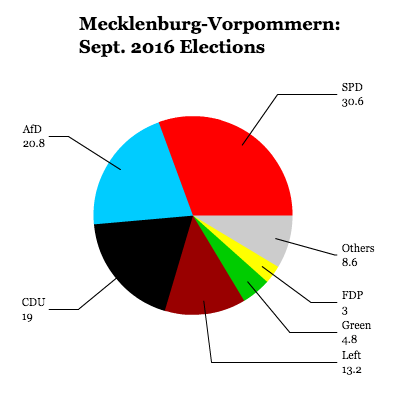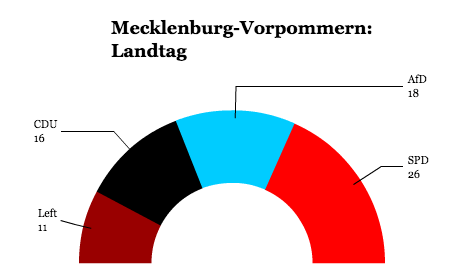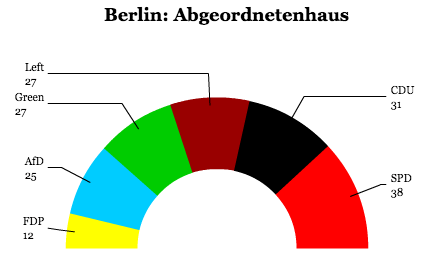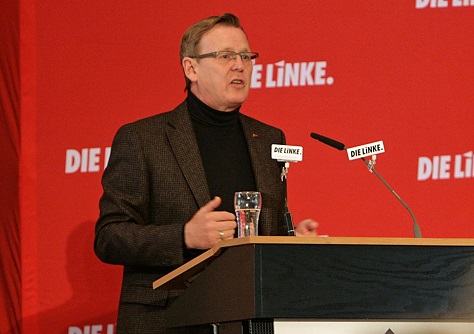
It’s entirely possible that September 2016 marks the worst month of German chancellor Angela Merkel’s career.![]()

![]()
Merkel’s center-right party, the Christlich Demokratische Union (CDU, Christian Democratic Union) fell to third place in Mecklenburg-Vorpommern, a relatively low-population state of just 1.6 million that sprawls along the northern edge of what used to be East Germany. While the center-left Sozialdemokratische Partei Deutschlands (SPD, Social Democratic Party) has been traditionally stronger there in elections since reunification, two factors made the CDU’s loss particularly embarrassing. The first is that it’s the state that Merkel has represented since her first election in 1990 shorly after German reunification. The second, and more ominous, is that the CDU fell behind the eurosceptic, anti-refugee Alternative für Deutschland (Afd, Alternative for Germany), a relatively new party founded in 2013 that today holds seats in 10 of Germany’s 16 state assemblies and that, according to recent polls, will easily win seats in the Bundestag in next September’s federal elections.
Two weeks later, on September 18, Merkel’s CDU also suffered losses in Berlin’s state election. As left-wing parties have long dominated Berlin’s politics, and the SPD placed first and Germany’s Die Linke (the Left) and Die Grünen (the Greens) placed third and fourth behind the CDU. But even in Berlin, the AfD still won 14.2% of the vote.
Taken together, the state election results forced a mea culpa from Merkel on Monday. The chancellor, who is expected (though by no means certain) to seek a fourth consecutive term next year, departed from the calm, steely confidence that since last summer has characterized her commitment to accept and integrate over a million Syrian refugees within Germany’s borders. Merkel admitted, however, that she would, if possible, rewind the clock to better prepare her country and her government for the challenge of admitting so many new migrants, and she admitted lapses in her administration’s communications. With the AfD showing no signs of abating, it’s clear that its attacks on Merkel’s open-door policy are working. Merkel’s statement earlier this week admitted that her policies have not unfolded as smoothly as she’d hoped.
* * * * *
RELATED: Can Hillary Clinton become America’s Mutti?
* * * * *
Indeed, German polls are starting to show that voters are souring on Merkel and her approach to migration, so much that in one poll in August for Bild, a majority of voters no longer support a fourth term for Merkel. All of which has led to hand-wringing both in Germany and abroad that Merkel’s days are numbered.
Don’t believe it. Continue reading Merkel may be down, but don’t rule her out for a fourth term just yet







